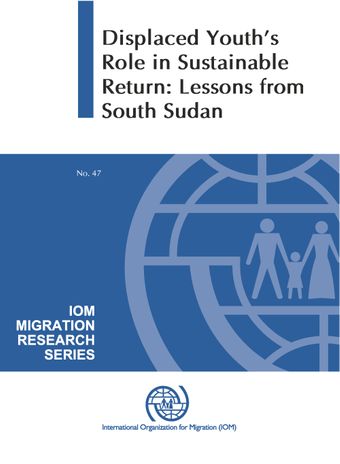Displaced youth

- Author: Marisa O. Ensor
- Main Title: Displaced Youth’s Role in Sustainable Return , pp 31-38
- Publication Date: June 2013
- DOI: https://doi.org/10.18356/99309f18-en
- Language: English
Central to negotiating continuity and change in any context, youth represent the focal point of the profound transformations that characterize post-independence South Sudan. Interest in “youth” as a category of social, political and economic importance has become increasingly evident in scholarly and policy circles over the past few decades. Most of this focus on young people has been directed to the global south, which hosts roughly 85 per cent of the world’s youth population (Abbink, 2005; Jeffrey et al., 2008). Earlier studies of youth in conflict-affected societies tended to adopt a negative outlook, with younger children typically categorized as victims while adolescents and youth were largely perceived as a potential force for social disruption and upheaval. International attention has progressively shifted from an exclusive concern with the negative impacts of unsustainable development and/or violent conflict to a positive awareness of the creative roles that young people can play as agentive participants in the process of post-conflict reconstruction, not just passive recipients of others’ provisions (Ensor, 2012).
-
From This Site
/content/books/9789213630334c011dcterms_title,dcterms_subject,pub_keyword-contentType:Journal -contentType:Contributor -contentType:Concept -contentType:Institution105

